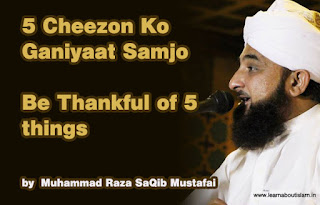What is your purpose in life? What is the rationale behind our life? Why do we live in this life? These questions frequently intrigue people who try to find accurate answers.
People provide different answers to these questions. Some people believe the purpose of life is to accumulate wealth. But one may wonder: What is the purpose of life after one has collected colossal amounts of money? What then? What will the purpose be once money is gathered? If the purpose of life is to gain money, there will be no purpose after becoming wealthy. And in fact, here lies the problem of some disbelievers or misbelievers at some stage of their life, when collecting money is the target of their life. When they have collected the money they dreamt of, their life loses its purpose. They suffer from the panic of nothingness and they live in tension and restlessness.
Worshipping Allah as an Aim
On the contrary, faith in Allah gives the believer the purpose of life that he needs. In Islam, the purpose of life is to worship Allah. The term "Worship" covers all acts of obedience to Allah.
The Islamic purpose of life is a standing purpose. The true Muslim sticks to this purpose throughout all the stages of his life, whether he is a child, adolescent, adult, or an old man.
Worshipping Allah makes life purposeful and meaningful, especially within the framework of Islam. According to Islam this worldly life is just a short stage of our life. Then there is the other life. The boundary between the first and second life is the death stage, which is a transitory stage to the second life. The type of life in the second stage a person deserves depends on his deeds in the first life. At the end of the death stage comes the day of judgment. On this day, Allah rewards or punishes people according to their deeds in the first life.
The Eternity of the Second Life
The concept of the eternity of the second life has a tremendous effect on a Muslims during their first life, because Muslims believe that their first life determines the shape of their second life. In addition, this determines the shape of their second life and this determination will be through the Judgment of Allah, the All just and Almighty.
With this belief in the second life and the Day of Judgment, the Muslim's life becomes purposeful and meaningful. Moreover, the Muslim's standing purpose is to go to Paradise in the second life.
In other words, the Muslim's permanent purpose is to obey Allah, to submit to Allah, to carry out His orders, and to keep in continues contact with Him through prayers (five times a day), through fasting (one month a year), through charity (as often as possible), and through pilgrimage (once in one's life).
The Need for a Permanent Purpose
Disbelievers have purposes in their lives such as collecting money and property, indulging in sex, eating, and dancing. But all these purposes are transient and passing ones. All these purposes come and go, go up and down. Money comes and goes. Health comes and goes. Sexual activities cannot continue forever. All these lusts for money, food and sex cannot answer the individual's questions: so what? Then What?
However, Islam saves Muslims from the trouble of asking the question, because Islam makes it clear, from the very beginning, that the permanent purpose of the Muslim in this life is to obey Allah in order to go to Paradise in the second life.
We should know that the only way for our salvation in this life and in the hereafter is to know our Lord who created us, believe in Him, and worship Him alone.
We should also know our Prophet whom Allah had sent to all mankind, believe in Him and follow Him. We should, know the religion of truth which our Lord has commanded us to believe in, and practice it …
Those in search of truth
Who have an open mind and heart,
Islamic Education Foundation
Welcome You.
Objectives: -
To Convey the message of Islam
To Educate Muslims about Islam
To keep in close contact with new Muslims.
Activities:
Offering Courses and presenting lectures about Islam in several languages.
Teaching Islam and Arabic.
Teaching new Muslims to receive the Holy Quran.
Helping Non- Muslims embrace Islam and complete the required procedures





















